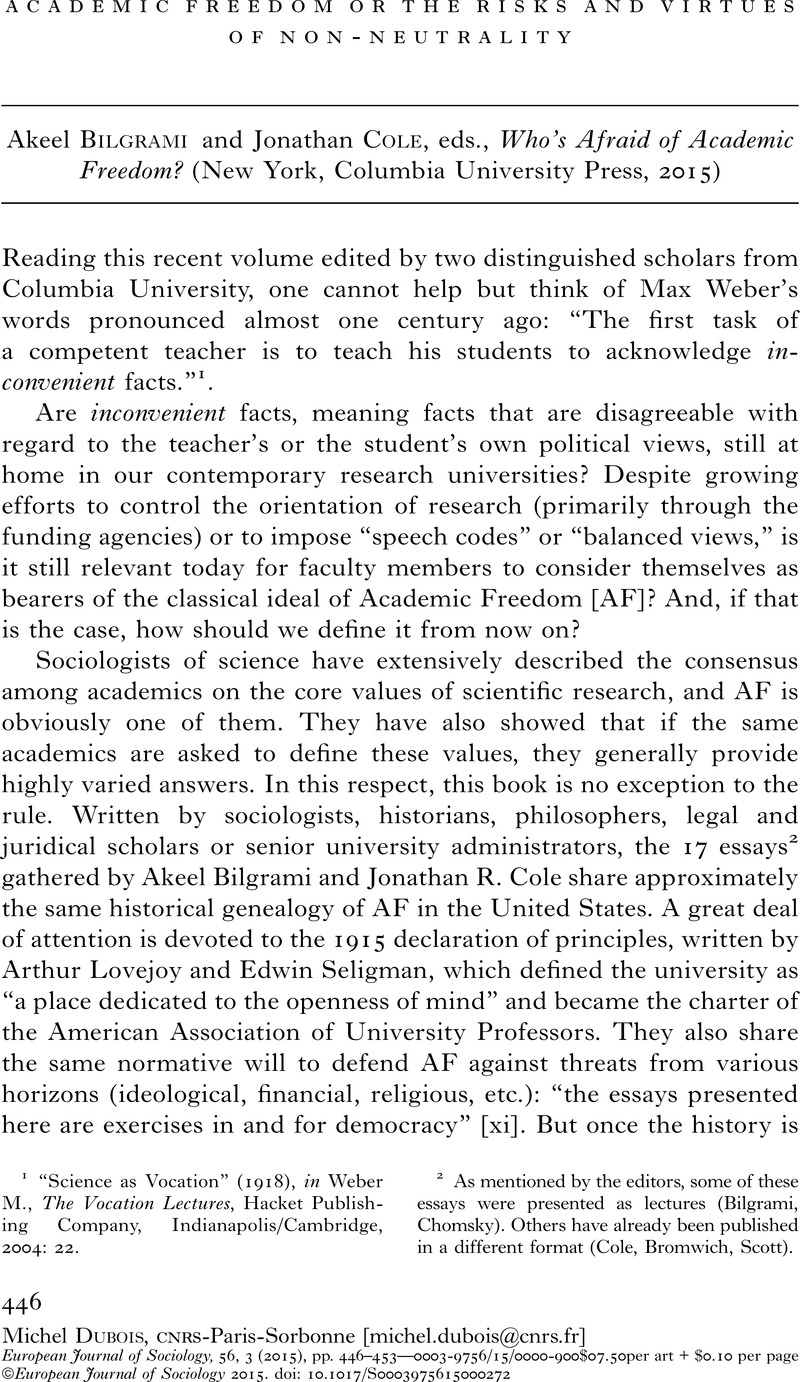No CrossRef data available.
Article contents
Academic Freedom or the Risks and Virtues of Non-Neutrality - Akeel Bilgrami and Jonathan Cole, eds., Who’s Afraid of Academic Freedom? (New York, Columbia University Press, 2015)
Published online by Cambridge University Press: 30 December 2015
Abstract

- Type
- Book Reviews
- Information
- European Journal of Sociology / Archives Européennes de Sociologie , Volume 56 , Issue 3 , December 2015 , pp. 446 - 453
- Copyright
- Copyright © A.E.S. 2015
References
1 “Science as Vocation” (1918), in Weber M., The Vocation Lectures, Hacket Publishing Company, Indianapolis/Cambridge, 2004: 22.
2 As mentioned by the editors, some of these essays were presented as lectures (Bilgrami, Chomsky). Others have already been published in a different format (Cole, Bromwich, Scott).
3 Baker P., Slevin P, “Bush Remarks On ‘Intelligent Design’ Theory Fuel Debate,” Washington Post, August 3, 2005.
4 Cole recalls that “political pressure to include ‘creationism’ and theories of ‘intelligent design’ as alternatives to Darwinian evolution in the secondary school science curriculum has already led to a purging of Darwin's theory from the science curriculum in at least thirteen states” (45).
5 I.e. the theoretical impossibility for universities “to endorse candidates, condemn policies, embrace causes, or advocate positions, not integrally related to higher education itself” (Stone: 8).
6 For example, “The preeminence of American universities is an established fact. […] Our universities are the envy of the world, in part because the systems of higher education in many other countries […] do not allow their faculty and students the extensive freedom of inquiry that is the hallmark of the American system” (Cole: 41); “The commitment to maintain open, rigorous, intense inquiry in an environment of maximal intellectual freedom is not a simple one. […] The University of Chicago holds these as its highest values, and we seek to reinforce them at every turn” (Zimmer: 245); “At the City University of New York, the nation's largest public urban university, the commitment to academic freedom is well established and firmly held” (Goldstein and Schaffer: 250).




